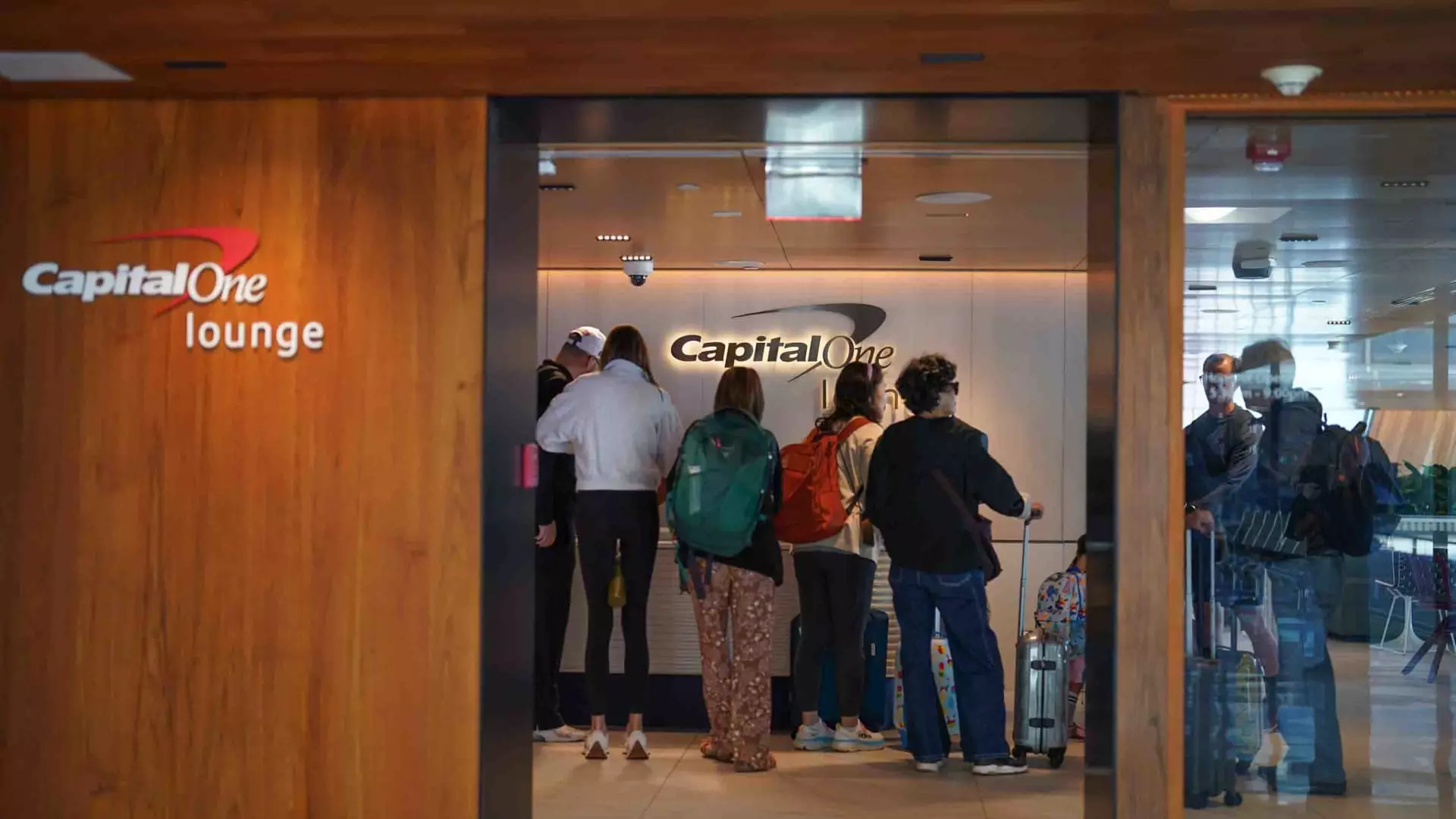In an era where affordability often seems a mirage, the travel experience paradoxically gets convoluted as luxury becomes a burden rather than a blessing. Everyone hears that airplane tickets are becoming cheaper, but few seem to notice the looming costs associated with the luxury of comfort before takeoff. Enter Capital One, a brand that initially seemed poised to offer a more approachable gateway to premium travel; however, its recent changes to airport lounge access reveal a more insidious reality sweeping through the airline industry. What was once a complimentary perk available to credit cardholders is now morphing into an exceptionally priced privilege, making one question whether comfort is worth a price tag that feels more predatory than premium.
The proposed fee structure, implemented by Capital One starting February 1, hits like a bad punchline to a travel joke: pay $125 annually for each additional cardholder just to maintain lounge access? $45 for adult guests, and $25 for anyone under 17? What’s next, charging for air? The company’s attempt to mitigate overcrowding in lounges translates to a gatekeeping strategy where exclusivity is prioritized over accessibility. Even the high spend requirement of $75,000 annually for complimentary guest access adds yet another layer of elitism to an otherwise inviting space. It seems that in Capital One’s quest to elevate the lounge experience, they have inadvertently alienated the very customers who are passionate about the perks of travel.
Playing Favorites: The Brand’s Backyard Politics
Liberal views dictate that access to essential services—whether it be health, education, or now, airport lounges—shouldn’t be contingent upon economic status. While services like Capital One’s lounges aim for a balance between experience and crowd management, the overarching message is clear: unless you’re wealthy enough to meet the escalating qualifications, you might as well savor your mediocre airport chairs like everyone else. This elitist pivot aligns not only with the practices of Capital One but increasingly reflects a growing trend among travel service providers.
It’s ironic that a company would position itself as a “challenger brand” while simultaneously integrating restrictive measures that echo the conventional approaches of American Express and Chase. Even industry expert Henry Harteveldt acknowledges this irony, suggesting that these lounges have become “victims of their own success.” This begs for a reality check: are we willing to settle for “exclusive” over “inclusive” just because a brand decides to elevate its status through buyer’s remorse? The fact that such access and comfort is now reserved for the affluent speaks volumes about growing disparities in access to life’s finer things.
The Broader Tech-Touch within Travel
The rise of airport lounges is but a microcosm of a larger trend everywhere in our service-oriented economy—where social interaction is deemed secondary to financial capacity. Airlines are notoriously adjusting their policies to favor structures that presumably serve the most lucrative clientele. Delta Air Lines following suit with its brave decision to limit access underscores a collective movement toward reserving amenities for a slimmer demographic, prioritizing profits over people. The desire for physical escape morphs into an elite transaction rather than an intrinsic experience, reflecting a societal regression disguised as modernity.
Conversely, despite this shift toward exclusivity, domestic travelers and modest vacationers remain the heart and soul of the travel industry. They deserve the simple thrill of lounging before a long journey without financial strain. The once-sacred space of an airport lounge, where travelers could briefly transcend the chaos of the airport environment, is now layered with barriers reminiscent of a fashionable nightclub. It sacrifices its initial sanctity for transactional deliberation and self-serving economics, laying bare the psychological complexities that travelers now encounter.
A Call to Action: Rethink Your Travels
There must come a time when we, as a collective society, question this balance of luxury and accessibility. Shouldn’t travel be about experience rather than an affluent contest? Shouldn’t we be actively striving for experiences that elevate everyone’s journey—not just the wallets of the elite? Through this lens, the exorbitant fees and restrictive policies emerge less as a business strategy and more as a reflection of our societal values. It’s high time consumers push back, demand transparency, and foster an environment where luxury doesn’t equate to exorbitance.
Travel should be about connection, exploration, and shared experiences. The path forward will demand an honest reflection of priorities to ensure that the comforts of travel remain a realm accessible to all, rather than a privilege of the few.


Leave a Reply